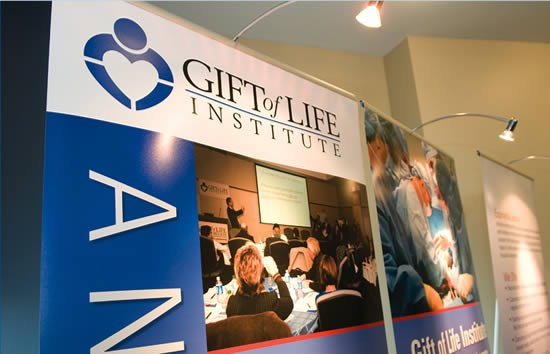For several decades, first responder organizations have utilized Critical Incident Stress Management (CISM) techniques to provide necessary assistance to fire, EMS, and law enforcement personnel. Initial skepticism gave way to recognition of need, and the idea of “suck it up and deal with it,” is far less pervasive within the emergency services community.
The COVID-19 pandemic prompted similar awareness of the need for peer support within established health care systems, and similar programs have been developed in hospitals. OPO professionals should have access to the same support as they are exposed to many of the same stressors experienced among first responders and hospital personnel.
I recently had the opportunity to talk with psychologist Dr. Joanne Krug, a founding member of the Eastern PA Regional CISM team, one of the first such programs in the country. She agrees that OPO staff would benefit from a peer support system.
Dr. Krug pointed out the striking range of experiences OPO teams encounter. “Someone working in organ procurement has a unique experience. The task is incredibly important and satisfying. Nevertheless, there is a distress to the job… including the intensity of the work, opposition and resistance encountered during the work, and dealing with grief all the time.” She further notes that OPO professionals are “balancing the grief of one family and the joy of another simultaneously.”
In Dr. Krug’s view, maintaining the ability to be effective centers on preparation. She suggests that each of us develop “rituals” to accomplish this. Awareness of what to expect through preparation (e.g., knowing travel details, logistics, whether the team we encounter may be receptive or challenging) can mitigate stress in advance.
Consider what support you need during your workday. Ensuring you eat, stay hydrated, and take a mental break are important. It can be enormously helpful to step outside and get a breath of fresh air. Reaching out to your team and seeking assistance is good self-advocacy. Further, what is your routine post-call? Dr. Krug says we must, “be mindful of stepping off the treadmill.” Knowing when and to whom you can reach out creates an easier pathway to doing so.
Similar to what CISM teams suggest to first responders, Dr. Krug recommends attention to self-care; physical needs through exercise, a healthy diet, preventative care, emotional and spiritual needs through interacting with friends and family, and participating in activities that promote relaxation. Key to this is knowing what your support system looks like.

Dr. Krug often instructs first responders to complete a “support system inventory” from time to time. Think about your internal support, the things you do for yourself. Then consider the next layer, the support system within your family and work friends. Identify people you can talk with when things are feeling stressful. Consider the layer of assistance beyond this, where teams such as peer support can play a role. “Having a peer to talk through a difficult experience can be enormously helpful. They understand the range of emotions you might be experiencing,” Dr. Krug observes. She also recommends a routine review of your support system, “whenever you change batteries in your smoke detectors, complete your support system inventory review, as well.”
CISM teams are prepared to support many individuals, not only firefighters, paramedics, and police officers. OPO professionals who are feeling the need for support should consider reaching out to the CISM team nearest them for assistance.
Resources:
- The International Critical Incident Stress Foundation, Inc. https://icisf.org/
- CISM team listings https://icisf.org/cism-team-listings/
- Complete Psychological First Aid (PFA) training through several free programs available online.
Jennifer (Jen) Timar has worked at Gift of Life Donor Program since 2004 where, as both an Advanced Practice Coordinator and Transplant Coordinator, she has facilitated optimal organ donor processes, including the family conversation, medical management, and operative recovery. Currently, Jen serves on the faculty at Gift of Life Institute.

